The pub is a former post office. Stone had its own postmaster as early as 1575, when the official in question was William Nicholson, described as ‘The Poste of Stone’.
An illustration of Shakespeare, followed by a quote.
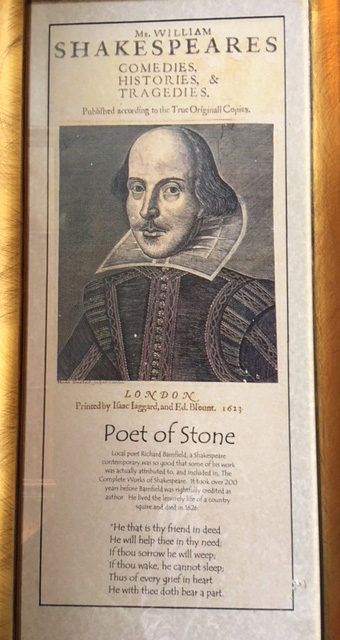
“He that is my friend in deed
He will help thee in thy need;
If thou sorrow he ill weep;
If thou wake he cannot sleep;
Thus of every grief in heart he with thee doth bear apart”
An illustration and text about Hovis.
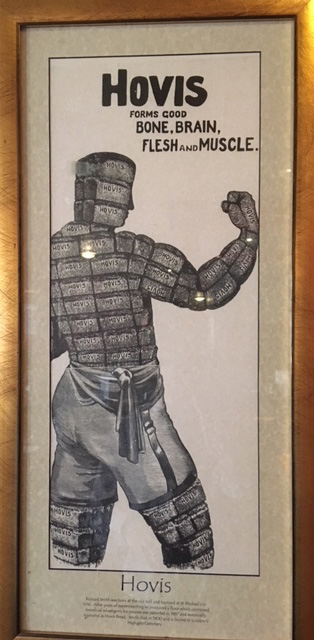
The test reads: Richard Smith was born at the old mill and baptised at St Michael’s in 1836. After years of experimenting he produced a flour which contained beneficial wheatgerm. His process was patented in 1887 and eventually marketed as Hovis Bread. Smith died in 1900 and is buried in London’s Highgate Cemetery.
A print and text about Izaac Walton.

The test reads: Izaac Walton, born 1593, set out to write a simple treatise on his hobby and instead produced a classic of English literature The Compleat Angler. Walton had left Staffs for London but returned to live locally in retirement until his death aged 90 in 1683.
An illustration and text about the Duke of Cumberland.
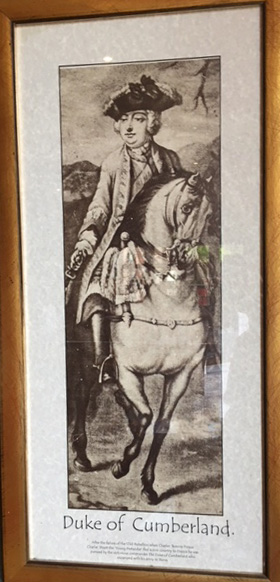
The test reads: After the failure of the 1745 rebellion when Charles ‘Bonnie Prince Charles’ Stuart the ‘Young Pretender’ fled across country to France he was pursued by the victorious commander the Duke of Cumberland who encamped with his army in Stone.
A photograph and text about Granville Square.
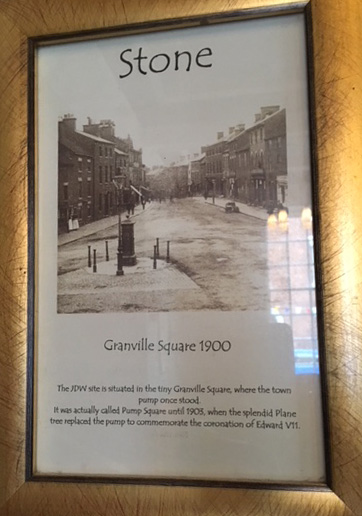
The test reads: This JDW site is situated in the tiny Granville Square, where the town pump once stood. It was actually called Pump Square until 1903 when the splendid plane tree replaced the pump to commemorate the coronation of Edward VII.
A photograph and text about Stone.
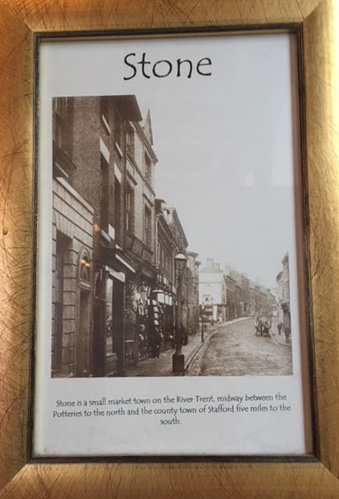
The text reads: Stone is a small market town on the River Trent, midway between the Potteries to the north and the county town of Stafford five miles to the south.
An illustration and text about the Saxon saga.
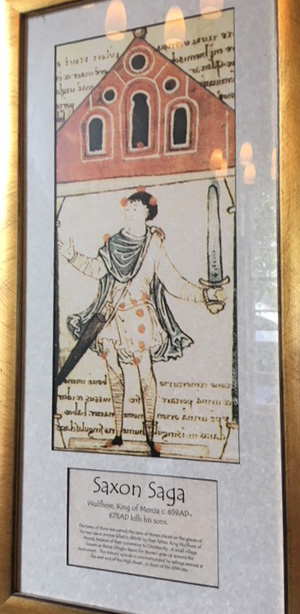
The text reads: The town of Stone was named the cairn of stones placed on the graves of the two Saxon princes killed in 665AD by their father, King Wulfhere of Mercia because of their conversion to Christianity. A small village known as Stanes (Anglo-Saxon for Stones) grew up around the monument. This historic episode is commemorated by railing erected at the west end of the High Street, in front of the JDW site.
If you have information on the history of this pub, then we’d like you to share it with us. Please e-mail all information to: pubhistories@jdwetherspoon.co.uk